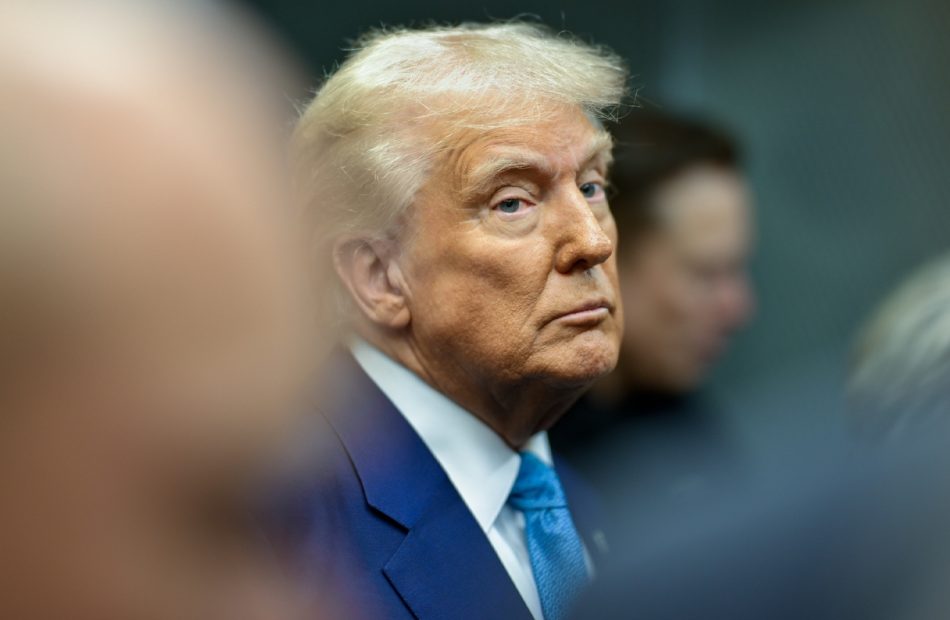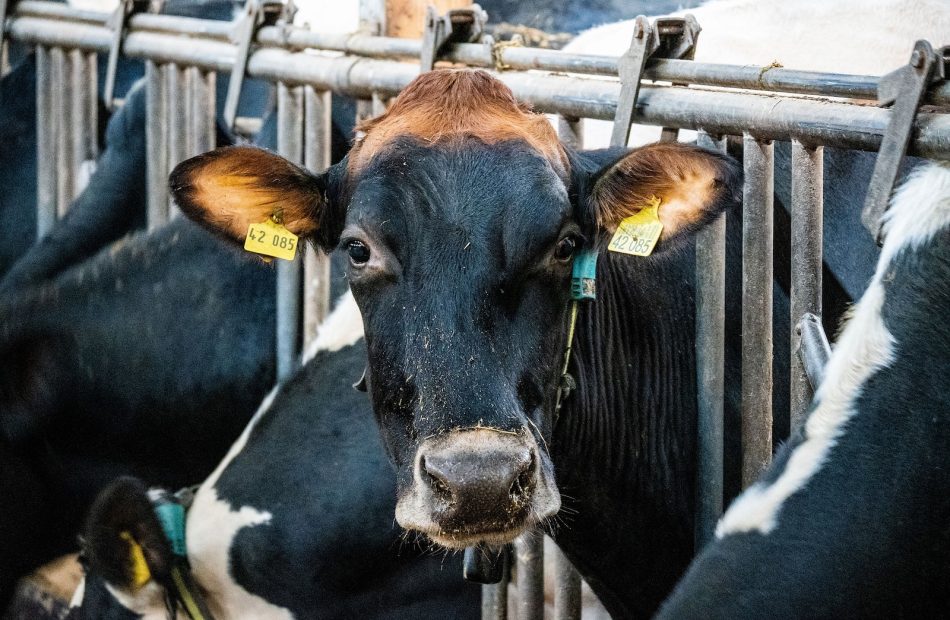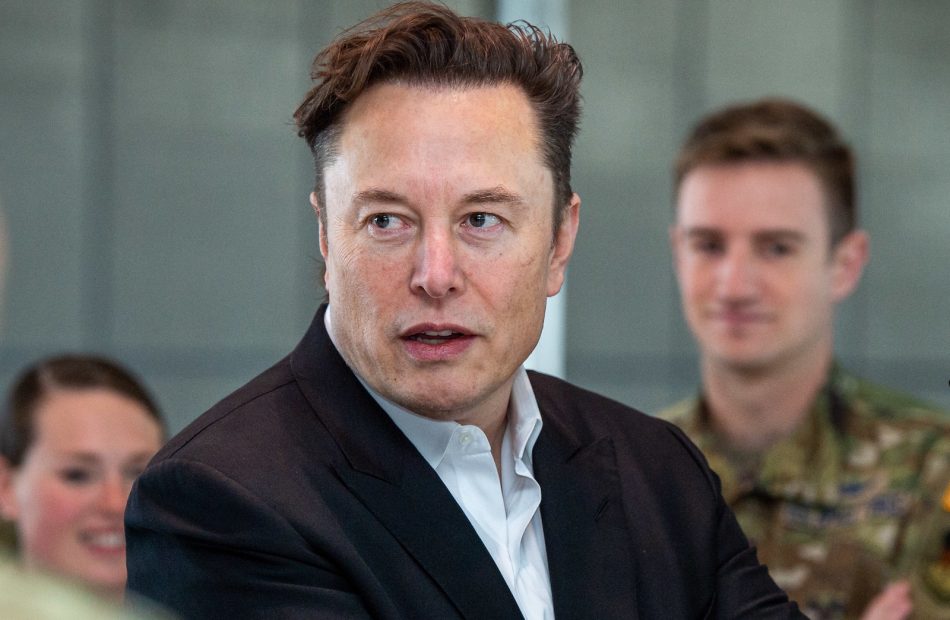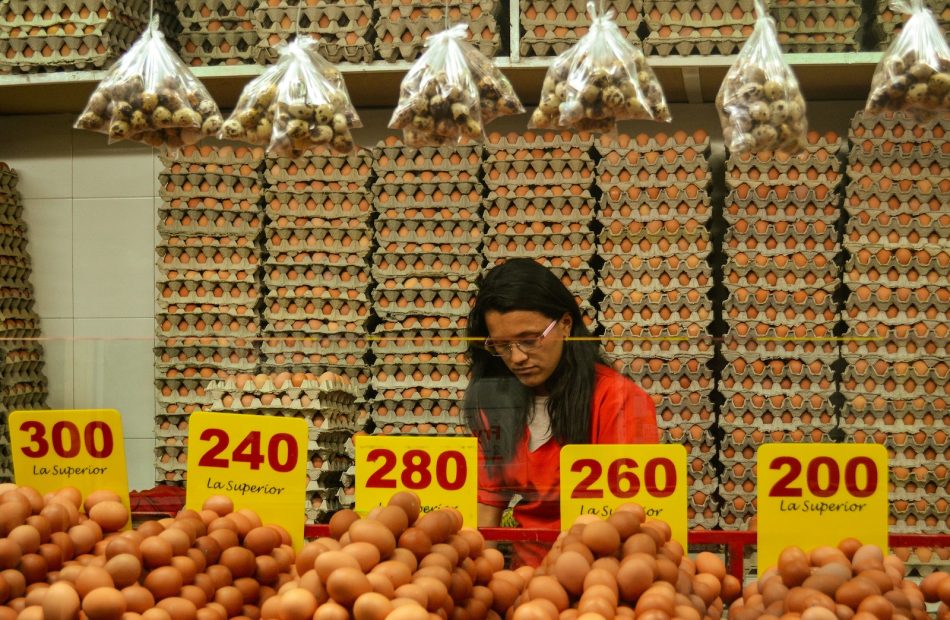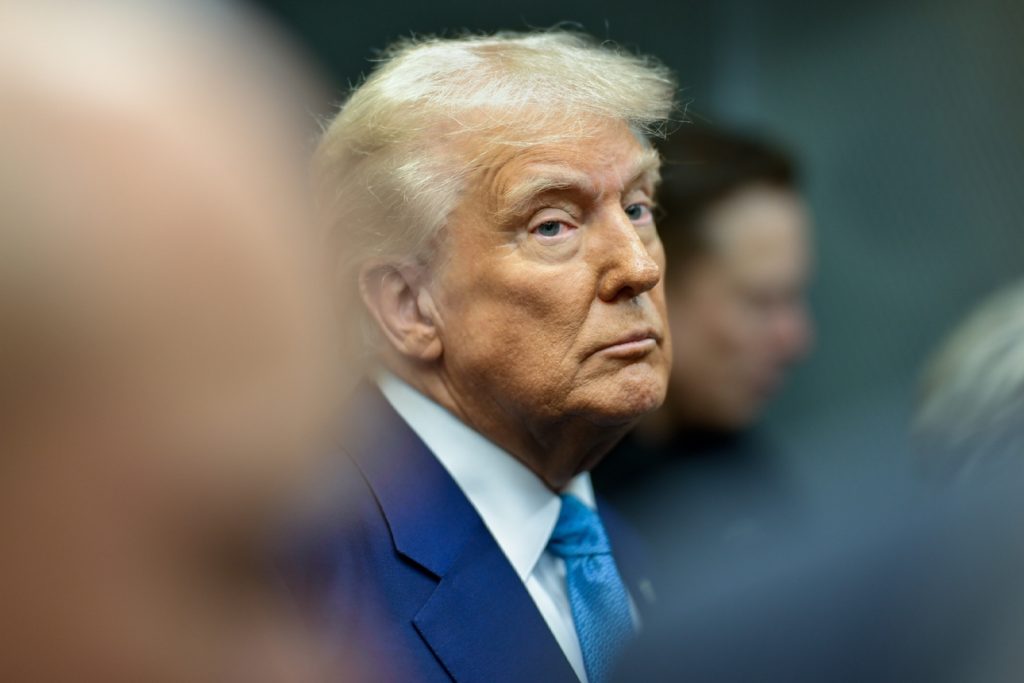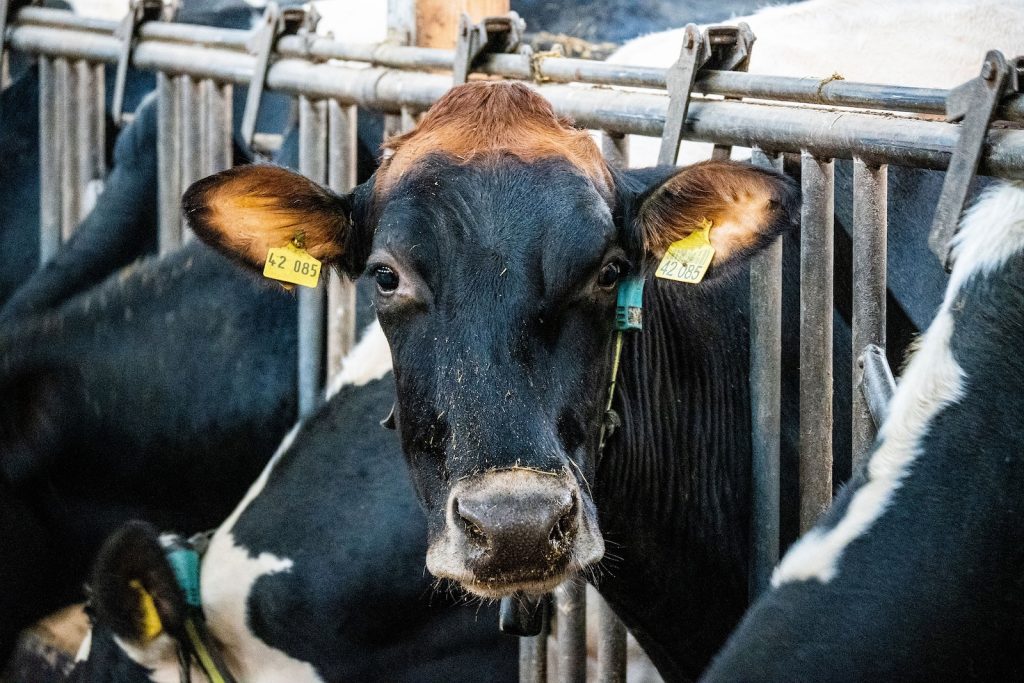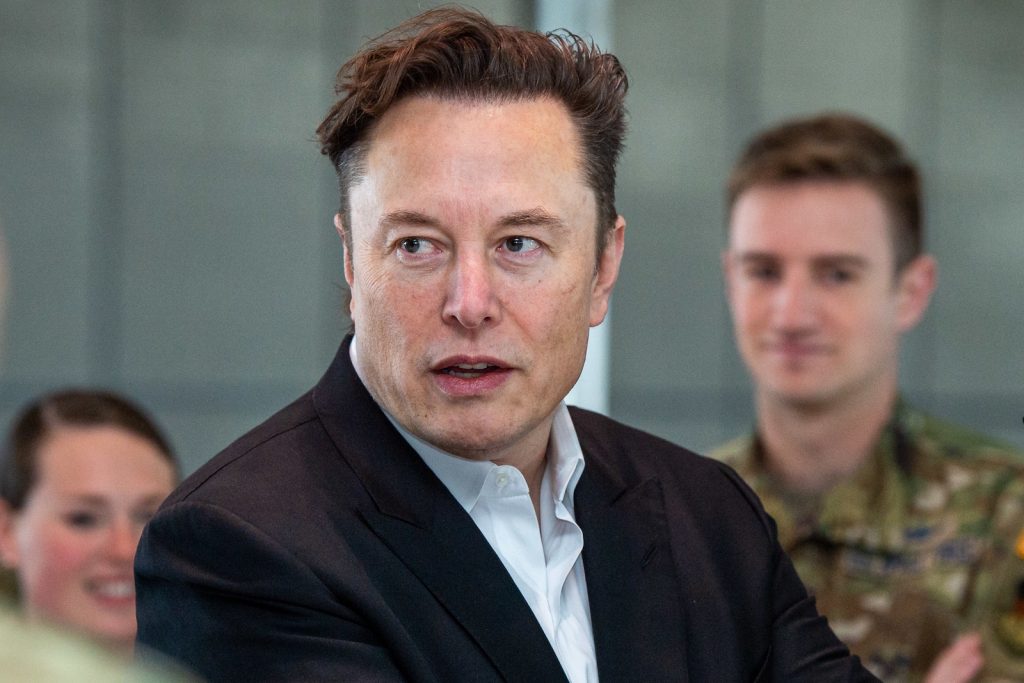News Classic
Tesla’s European Slide Signals a Deeper Reckoning for Musk’s EV Empire
Europeans continue to turn their backs on Elon Musk’s Tesla.
Wall Street Rattled as Trump’s Trade Gambit Roils Global Markets
The specter of “Liberation Day” ignites volatility, inflation fears, and a crisis of confidence from New York to Tokyo.
Trump’s Tariff Confession, Buried in a Leaked Call, Shatters His Own Economic Myth
Trump’s latest tariff move undercuts his own economic rhetoric, revealing a chaotic agenda that harms the very American manufacturing future he claims to champion.
Deadly Bird Flu Strain ‘Could Make COVID Seem Like A Walk In The Park,’ Expert Says
A dangerous strain of bird flu has spread to U.S. dairy cows, raising fears of a new endemic threat with pandemic potential.
The Economy Holds Its Breath as Trade Tensions Cast a Long Shadow
U.S. and global economies are showing signs of slowing as trade tensions, led by impending U.S. tariffs, fuel uncertainty and dampen business and consumer confidence.
Trouble at Tesla and Protests against Trump’s Tariffs Suggest Consumer Boycotts are Starting to Bite
By Erin O’Brien and Justine Coneybeer
When the United States starts a trade war with your country, how do you fight back? For individuals, one option is to wage a personal trade war and boycott products from the U.S.
President Donald Trump has said no nation will be exempt from his tariffs, and this includes both Australia and New Zealand. His tariffs on all steel and aluminium imports, in particular, could hurt the sector in Australia, while New Zealand’s meat and wine exports to the U.S. could also feel the effect.
So far, political leaders have responded differently. Canada, Mexico, and the European Union have imposed reciprocal tariffs on the U.S., while Australia has indicated it will not retaliate.
But whether governments choose to push back or not, citizens in those and other countries are making their own stands. This includes artists such as renowned pianist András Schiff, who has cancelled his upcoming U.S. tour.
Most notably, collective outrage at the U.S. president has led to a growing global boycott of Elon Musk’s Tesla due to his role in the Trump administration. Sales of new Tesla vehicles are down 72% in Australia and 76% in Germany. The share price has dropped by more than 50% since December 2024, with calls for Musk to step down as chief executive.
Some governments are even encouraging consumer boycotts. The Canadian government, for example, has urged citizens to “fight back against the unjustified U.S. tariffs” by purchasing Canadian products and holidaying in Canada.
Canadians are clearly embracing this advice. Road trips to the U.S. have dropped by more than 20% in the past month, and U.S. liquor brands have been removed from some Canadian stores altogether.
This rise in calls for boycotts of American brands and companies is unsurprising in the Trump 2.0 era, where the lines between government and corporate America have become increasingly blurred.
Political change by proxy
When people want to protest a government policy but have no political leverage because they’re not citizens of that country, boycotting corporations or brands gives them a voice. These actions are sometimes called “surrogate” or “proxy” boycotts.
This form of “political consumerism,” where individuals align their consumption choices with their values, is now one of the most common forms of political participation in western liberal democracies.
When France opposed the war in Iraq in 2003, U.S. supporters of the war aimed boycotts at French imports. Consumers in the U.S., the United Kingdom, and elsewhere have boycotted Russian goods over the invasion of Ukraine and targeted Israel over its military action and policies in Gaza and the West Bank.
Most famously, protests against the apartheid regime in South Africa from the 1950s through to the 1990s helped isolate and eventually change its government.
The current boycotts are not just protesting Trump’s trade war, of course. They are also about the role of unelected leaders from the corporate world, such as Musk and the heads of the Big Tech and social media companies, and their perceived self-interest and influence.
Trump has responded angrily to consumer boycotts, calling the actions against Tesla “illegal,” which they are not. Indeed, political leaders like Trump often argue that consumer action, rather than government regulation, should be relied on to ensure corporations conform to social expectations.
How to wage a personal trade war
Consumer boycotts do create change under certain conditions – typically when there is a contained problem that the targeted corporation has the power to solve.
For example, consumer boycotts against Nestlé in the 1970s over false and dangerous marketing of powdered milk for infants led to changes in the firm’s marketing approaches. Boycotts of Nike products over sweatshop conditions for workers had a direct impact on the company’s bottom line and led to improvements.
Things may still need to improve at Nestlé and Nike, but these boycotts show consumer pressure can catalyse corporate action. However, it is much harder – though not impossible – for boycott campaigns to succeed when the target is a government.
Consumers boycotting American products can amplify the impact of their protest by also lobbying retailers. For example, if enough consumers stop buying a bottle of soft drink from the U.S., major supermarkets like Woolworths and Foodstuffs will stop buying thousands of bottles.
There are also other ways to “vote with your wallet.” People can engage in “political investorism” by using their power as a shareholder, bank customer, or pension-fund member to express their political views.
After Russia’s invasion of Ukraine, for example, investors sought to divest from Russian companies, and superannuation funds were pressured by their members to do the same.
As consumers and investors, individuals can wage a personal trade war, sending a clear message. Trump may not be willing to listen to the leaders of allied nations, but if consumer and investor pressure is sustained and spreads globally, he may yet hear the voice of corporate America.
This article was originally published on The Conversation. Read the original article.
Egg Prices Soar as Outdated Supply Chains Crack Under Pressure
By Jack Buffington
There may be no kitchen table issue in America more critical than the price of food.
So when the price of eggs rose over 40% from 2024 to 2025, it became a headline news story in Colorado and across the nation.
Public officials and the media blamed high egg prices on bird flu outbreaks and said containing the outbreak in supply chains would lower prices. In early March 2025, egg prices fell in the U.S., but these trends are likely to reverse due to higher seasonal demand during Easter and Passover.
Rising prices and market volatility have led to food costs climbing to 11.4% of Americans’ disposable income, the largest percentage since 1991.
Arresting these rising costs, as I argue in my 2023 book, means reinventing supply chains to address the growing supply, demand, and price volatility that has created uncertainty for consumers since the COVID-19 pandemic of 2020.
I have described global supply chains, and supply chains in the U.S. in particular, as “efficiently broken.” By this, I mean that they aspire to offer low prices from economies of scale but lack sufficient resiliency to create stability.
Without addressing the systemic weaknesses in supply chains, I believe major health and economic disruptions will continue to happen in Colorado, nationally and around the world.
Cage-free eggs
Colorado faces a double whammy where egg prices are concerned.
It’s one of nine states with a cage-free egg mandate, which requires all eggs sold in the state to come from cage-free facilities. The regulation has been shown to increase the price of eggs by as much as 50%.
Over the past two decades, cage-free egg laws have been passed in states as consumers have grown more concerned with the welfare of farm animals. What that means varies from state to state because the term cage-free isn’t regulated by a federal agency. In Colorado, egg-laying hens must be housed in a cage-free system and must have a minimum of 1 square foot of usable floor space per hen.
Colorado is the 28th largest egg producer in the U.S., far behind Midwestern states such as Iowa, Indiana and Ohio, but it has a few large producers such as Morning Fresh Farms, as well as smaller ones such as the Colorado Egg Producers Association, a collection of seven family-owned farms.
Colorado’s cage-free egg law went into effect in January 2025 – around the same time that consumers noticed bare egg shelves at their supermarkets. Many consumers and some elected Republicans in Colorado blamed the cage-free law.
Nevada is pulling back on its cage-free egg mandate to deal with the challenge of unaffordable egg prices.
But cage-free laws are not the main driver of increasing egg prices, as I’ve noted in my research. Like many others, the egg supply chain needs to be reinvented to balance price, scale, resiliency and stability.
Supply chain issues
What is driving up the prices of eggs and other consumer goods is the concentration of producers. The COVID-19 pandemic revealed just how vulnerable prices and supply chains are.
Five years ago this month, when the pandemic started, many products became unavailable and more expensive.
In 2022, a major product recall of Similac led to a baby formula shortage in the U.S. The baby formula market is highly concentrated, with four companies responsible for approximately 90% of the domestic market. A large-scale facility that produced the baby formula was found to have unsanitary conditions and contaminated products. Pulling this one facility offline at the same time the nation was coping with pandemic-related supply chain issues led to the shortage.
Then at the beginning of 2024, supplies of insulin ran short due to production issues at Eli Lilly, one of the three companies responsible for over 90% of the U.S. insulin market.
And in the second half of 2024, hospitals couldn’t get enough IV fluid due to damage caused by Hurricane Helene to a Baxter factory in North Carolina that manufactures approximately 60% of IV fluids in the U.S. This factory had been relocated to North Carolina from Puerto Rico due to the supply impact from Hurricane Maria that damaged the island in 2017.
In all of these cases, the supply chain was easily interrupted due to a reliance on a few large producers. In 2025, bird flu and eggs are just another example of America’s “efficiently broken” supply chain.
Bird flu and cost of eggs
In the U.S., the top five egg producers are responsible for 40% of hens, with Mississippi-based Cal-Maine Foods alone responsible for 13% of total U.S. production.
An average-sized production facility in the U.S. can house 75,000 to 500,000 hens. Large facilities can house over 4 million. The mass production of eggs from these facilities means eggs are, in stable times, cost effective for the American consumer. Prior to the COVID-19 pandemic, eggs in the U.S. never surpassed $3 a dozen, and it was an affordable food solution compared with processed foods.
But this scale and efficiency comes at the price of resiliency during something like a bird flu outbreak. Larger farms create a higher risk of viral outbreak, which leads to the need for culling millions of birds and a heightened risk of viral replication and mutation.
The solution may increase prices
Policymakers want to reduce the spread of disease at American egg factories to mitigate the spread of bird flu. But these measures are expensive.
Factory farms increase the potential for viruses to spread rapidly and even mutate. Therefore, bird flu is a more serious precursor of supply chain disruption than a hurricane or product recall because it has the potential to create a public health crisis.
One solution to limit the spread of bird flu is to regulate the number of hens allowed in a single facility. This would lead to smaller and more farms across the U.S., but also higher consumer prices.
This solution would mirror other countries such as Canada, where the average facility size is much smaller than in the U.S., and eggs and poultry cost significantly more. That’s why – under the terms of the United States-Mexico-Canada Agreement – Canada has quota and tariff protection from American companies flooding its market with eggs and poultry that would cost consumers two to three times less.
Yet in March 2025, the price of eggs in Canada is 50% cheaper than eggs in the U.S. because the country has not suffered the same damages from bird flu.
Following Canada’s lead wouldn’t result in egg prices as low as giant factory farms, but it would protect American consumers from the periodic price shocks caused by disease or localized weather events that disrupt supplies.
Despite the threat of a public health crisis, American consumers don’t want to pay more for eggs – and their leaders have promised they won’t have to.
This article was originally published on The Conversation. Read the original article.
SEC Crypto Task Force to Host Four More Roundtables
Washington D.C.—The Securities and Exchange Commission’s Crypto Task Force announced today it will hold four more roundtables in its ongoing series discussing crypto asset regulation. The dates and topics for each roundtable are as follows:
April 11, 2025 – Between a Block and a Hard Place: Tailoring Regulation for Crypto Trading
April 25, 2025 – Know Your Custodian: Key Considerations for Crypto Custody
May 12, 2025 – Tokenization – Moving Assets Onchain: Where TradFi and DeFi Meet
June 6, 2025 – DeFi and the American Spirit
Each roundtable will be open to the public at SEC’s headquarters (100 F Street, N.E., Washington, D.C.) and streamed live on SEC.gov. For in-person attendance, please click on the specific roundtable above and then click the registration button. Please note that space may be limited, and visitors will be subject to security checks. For virtual attendance, there is no need to register, and a recording will be posted on SEC.gov at a later date. For more information about each session including the agenda and speakers, which will be posted as they are available, or to communicate directly with the Crypto Task Force on any of the roundtable topics or other crypto-related issues, please visit the Crypto Task Force webpage.
“The Crypto Task Force roundtables are an opportunity for us to hear a lively discussion among experts about what the regulatory issues are and what the Commission can do to solve them,” said Commissioner Hester M. Peirce, leader of the Crypto Task Force.
Launched on January 21 by Acting SEC Chairman Mark T. Uyeda, the Crypto Task Force was established to help the Commission draw clear regulatory lines, provide realistic paths to registration, craft sensible disclosure frameworks, and deploy enforcement resources judiciously.
If you are interested in being considered as a panelist for one of the upcoming roundtables, please email crypto@sec.gov with the subject line “Potential Panelist.” Due to expected demand, the Crypto Task Force will not be able to accommodate all requests.
News
See all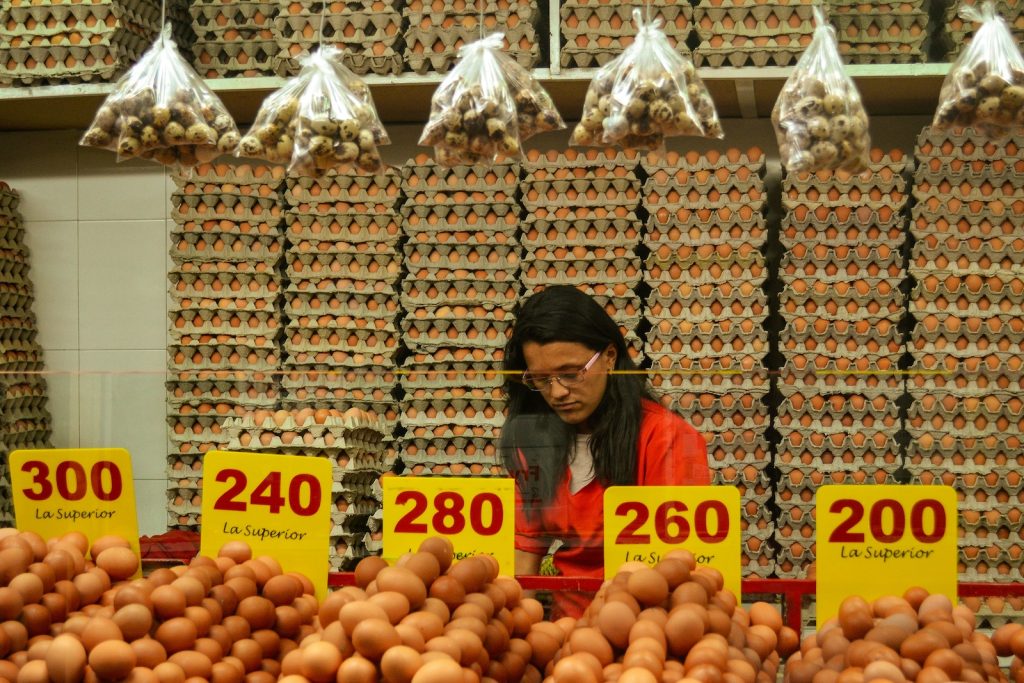
1 week ago
Egg Prices Soar as Outdated Supply Chains Crack Under Pressure
Markets
See all1 week ago
Finance
See all1 week ago
Tech
See all1 week ago



